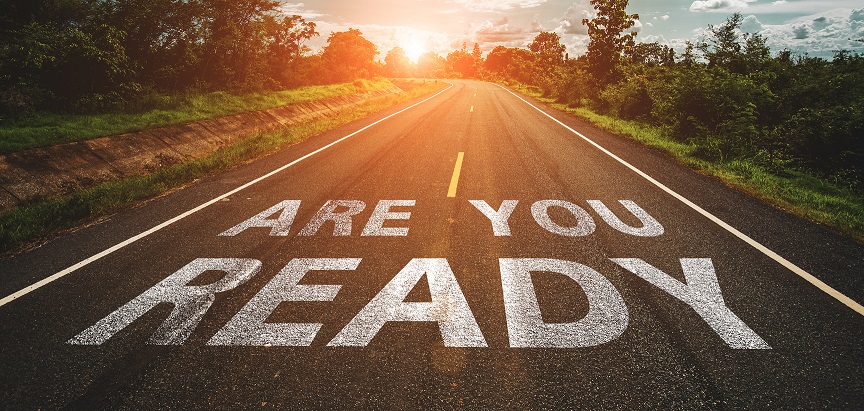Since the pandemic, there are a lot more people developing a preparedness plan for their family. It’s interesting how a negative event, disaster, or losing a loved-one, will change the way we plan or live our lives. Now, many people see that being prepared is important. Since we are certainly capable of ignoring or implementing a good preparedness plan – let’s discuss some areas that people tend to neglect.
Ten Things Most People Forget To Do That Are Critical To Survival
Sometimes it is not a matter of being forgetful but simply a matter of not seeing something as a priority or not realizing it is a priority because you do not any base knowledge from which to work. One person can survive with a butter knife and a handful of sting for two weeks while another may not be able to survive for two days. Much depends on your experience, training and mental commitment and making sure you do not forget anything.
The following may seem obvious to some people, but it certainly doesn’t hurt to take the reminder.
People Tend To Forget…
1.) People sometimes fail to remember that the sewer systems will not normally be in operation during a power disruption. The treatment plants need electricity to process the waste. Without power, the waste will build up, and in some cases, valves are closed to prevent buildup at the plant. This means that one or two flushes and the waste will back into your home. People may assume they can use the toilets if their water and electrical service is disrupted by pouring water into the toilet tank and flushing as normal, this would work of course if the processing plant were operational.
2.) People can remember the canned goods, dried meats and snacks but often times forget the plastic silverware and paper plates. Dirty plates piled in the sink because you do not have water to wash them and if you did have water, the drains will backup, so this mean you have a mess on your hands. Waste left in the open causes bacteria to grow and can cause a rodent or insect infestation.
Thank you for reading this post, don't forget to subscribe NOW for FREE!
3.) While preparing for one specific crisis such as a magnitude 12.0 earthquake, nuclear, chemical or biological attacks or even a super volcano people will forget about the common everyday disasters. Disasters such as tornadoes, hurricanes, floods, ice storms and blizzards are common occurrences. Some may have spent all their money building a doomsdays bunker and let other disaster sneak up on them and now they may be broke with a nice bunker but no food, water or other supplies they need to get through those annoying run of the mill disasters.
4.) Remember that during a crisis your physical activity level will increase and if you are not in reasonably good shape you may suffer health issues, so staying fit at all times is defiantly not something you can forget about. Without the help of modern conveniences (power tools, saws and so on) you may not be fit enough to complete some of the task needed unless you start now getting in shape for a disaster.
5.) People may not remember that others are affected by the crisis as well. If cell phone service is available during a crisis people will actually try to order take-outs. They may call for emergency responders and not understand why emergency responders cannot get a cross a bridge or highway that is washed out. You must prepare accordingly and realize that when you cannot cross a collapsed bridge or highway no one else can either.
6.) People tend to forget about their pets when preparing. Animals get nervous, and need special attention during a crisis and this can affect an animal’s overall health. They need emergency supplies just as do their human masters. Pets need emergency water, food and medicines.
 7.) Families go to the wholesale outlets that sell in large quantities and when they run across a bargain, they buy it to add to their emergency stockpile. What they tend to forget however is expiration dates. That super sized case of crackers has an expiration date. Grains and baked goods can become infested with weevils over time, so they must be inspected periodically. Food must be rotated out of the emergency supplies and put in to use before the item expires, and then fresh supplies must be purchased to replenish. When the lights go out is not the time to find out that half of your food supply is not edible.
7.) Families go to the wholesale outlets that sell in large quantities and when they run across a bargain, they buy it to add to their emergency stockpile. What they tend to forget however is expiration dates. That super sized case of crackers has an expiration date. Grains and baked goods can become infested with weevils over time, so they must be inspected periodically. Food must be rotated out of the emergency supplies and put in to use before the item expires, and then fresh supplies must be purchased to replenish. When the lights go out is not the time to find out that half of your food supply is not edible.
8.) You know how to get where you are going in a vehicle, but do you know how to get there on foot or even on a bicycle. You may not even know the names of some streets but you know where to turn. People may forget that they will have to walk to some of these places during a crisis and unbelievably you can know how to get there by driving but can become lost if you try to get there on foot. Street level views are always different from the view seen from a moving vehicle. Landmarks can also be destroyed because of the crisis so it is important that you know how to get to where you are going by various means.
9.) People pick up so-called survival supplies or tools and have no idea how they work or in some cases, what the intended use is. The tool gets packed away and people forget why they bought it. Tools and any survival equipment must be tested by you to make sure you know how and when to use and to ensure it does what it is supposed to do.
10.) People forget food items that can make a difference in how well the family eats during a crisis. They plan to rely too heavily on “MRE’s” that can be loaded with preservatives. Certainly, it’s good to have the food stocked for emergency use, but you should consider the need for overall good nutrition. Fruits and Vegetables are essential to keeping you mind and body operating at peak performance.
Also… people tend to forget to stockpile spices such as salt, pepper and other dried ground spices. They forget about cooking oil, honey, sugar, coffee, tea and powdered milk. You may be so used to reaching for the milk in the refrigerator for cooking and baking that you never give powdered milk a thought until you do not have it during a crisis.
It’s important to note that good meals are vital not only for nutrition, but for overall morale of the family. The psychological benefits of a good meal in some case may outweigh the nutritional value during an emergency. Many families find great value in sitting around their table eating a good meal and sharing stories. In a crisis or disaster situation, it will be extremely helpful and comforting to make sure to participate in that important family ritual. It’s especially beneficial if kids are involved and are struggling with the stress of the difficulties around them.







